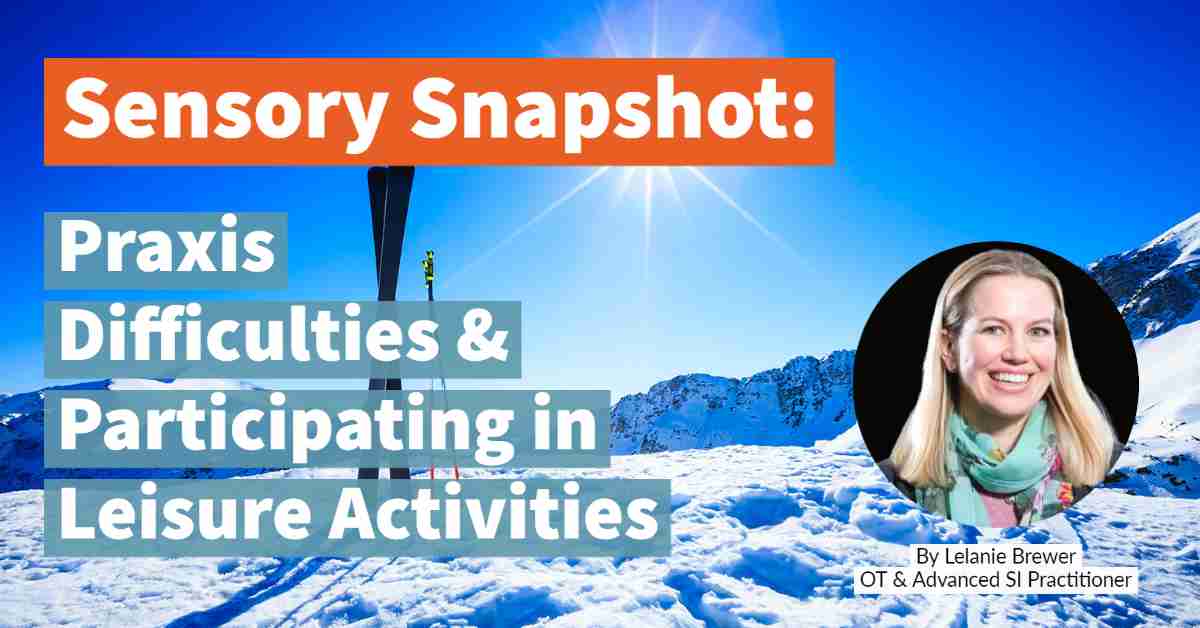Sensory Snapshot: Praxis Difficulties and Participating in Leisure Activities
By Lelanie Brewer, 17 January 2023

Do you know those cookbooks which skip the first few instructions in a recipe, expecting that the reader will automatically know the steps as it is common knowledge? If you have ever felt that you can’t be bothered to proceed with a recipe based on not knowing the first steps, spare a thought for individuals with praxis difficulties encountering new situations and, in particular, participating in sports and leisure activities.
A recent holiday experience reminded me of how much we take for granted when teaching individuals new skills. I went skiing for the first time and a lot of emphasis was placed on how to keep your balance on skis and how to stop yourself. Very important skills but, with my Occupational Therapy and Sensory Integration lens on, I started analysing the process from the moment we rented the ski equipment. Whilst I was mentally ready for the slopes, nobody warned me about how strange it would feel walking in ski boots for the first time - an experience that requires you to adjust your walking pattern. For someone with dyspraxia and vestibular processing difficulties, getting to a ski lift wearing ski boots without falling over could be a real challenge. The same goes for getting into a moving ski lift or a gondola, for example.
Skiing isn’t the only sport that requires a significant amount of motor planning before you even start the sport. Stand-up paddle boarding and most sports involving some kind of equipment consist of steps that you need to take before you start the actual activity. My experience is that many sport or gym instructors take good coordination for granted and are simply not aware that these preparatory steps can be challenging for individuals with motor planning and sensory processing difficulties. This can then discourage children (and adults) with these difficulties from participating in sports and leisure activities which could in fact potentially help them to improve their coordination.
So what can we do to support participation in leisure activities for individuals with sensory processing difficulties? Check in with your friends and family or, if you are an instructor, ask about the individual's experience of similar activities if he or she has not done a particular activity before. Remember that no step is too basic and that steps you may take for granted can be challenging for individuals who have never participated in the activity before. Finally, be encouraging and reassure them that what they are experiencing is completely normal.
Trust me, by doing all of this, you will make the world of difference.
Best wishes
Lelanie Brewer
PS: If you’re interested in finding out more about how sensory integration is critical to help us all to participate in day-to-day activities, check out our Introduction to Sensory Integration Difficulties online course.
Sensory Snapshot is a regular series by Advanced SI Practitioner and OT Lelanie Brewer. Lelanie gained her MSc in OT at Brunel University, London, and is pursuing a PhD with Newcastle University. Experienced in the NHS, charity and private sectors, as well as being a UK university senior lecturer, Lelanie is the Lead for Continuous Professional Development at Sensory Integration Education.

